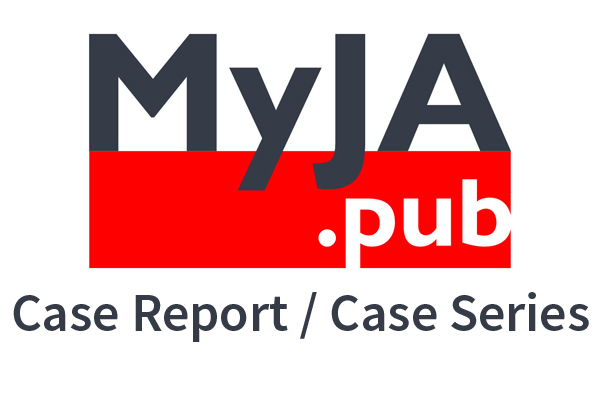Keywords
Abstract
The practice of total intravenous anaesthesia (TIVA) target-controlled infusion of propofol (TCI-propofol) during neonatal surgery was limited by the lack of an appropriate pharmacokinetic-pharmacodynamic model and safety concerns. This is due to the physiological differences between the adult and neonate populations as well as inter-individual pharmacodynamic variation. Eleveld is the latest propofol pharmacokinetic model commercially available and the only model with the neonatal population in its algorithm design. We present a case series of neonates that underwent neonatal surgery under TIVA TCI-propofol utilising the Eleveld pharmacokinetic model. There was no observable clinically significant hypotension intraoperatively. Careful titration of TCI-propofol was necessary for timely emergence and maintaining haemodynamic stability. All neonates were extubated well postoperatively and recovered uneventfully. These demonstrated good and desirable anaesthetic effects using TCI-propofol without undesirable short-term side effects, especially clinically significant hypotension.
References
Allegaert K, van de Velde M, van den Anker J. Neonatal clinical pharmacology. Paediatr Anaesth. 2014;(24):30-38. https://doi.org/10.1111/pan.12176
de Kort EHM, Prins SA, Reiss IKM, et al. Propofol for endotracheal intubation in neonates: a dose-finding trial. Arch Dis Child Fetal Neonatal Ed. 2020;105(5):489-495. https://doi.org/10.1136/archdischild-2019-318474
Eleveld DJ, Colin P, Absalom AR, Struys MMRF. Pharmacokinetic-pharmacodynamic model for propofol for broad application in anaesthesia and sedation. Br J Anaesth. 2018;120(5):942-959. https://doi.org/10.101/j.bja.2018.01.018
Allegaert K, Peeters MY, Verbesselt R, et al. Inter-individual variability in propofol pharmacokinetics in preterm and term neonates. Br J Anaesth. 2007;99(6):864-870. https://doi.org/10.1093/bja/aem294
Baxter A, McCormick JG. Total intravenous anaesthesia in neonates. Paediatr Anaesth. 2019;29(11):1081-1082. https://doi.org/10.1111/pan.13745
Morse J, Hannam JA, Cortinez LI, Allegaert K, Anderson BJ. A manual propofol infusion regimen for neonates and infants. Paediatr Anaesth. 2019;29:907-914. https://doi.org/10.1111/pan13706
Vellinga R, Hannivoort LN, Introna M, et al. Prospective clinical validation of the Eleveld propofol pharmacokinetic-pharmacodynamic model in general anaesthesia. Br J Anaesth. 2021;126(2):386-394. https://doi.org/10.1016/j.bja.2020.10.027
Lauder GR, Thomas M, Engelhardt T, Ungern-Sternberg BS. Volatile or TIVA: Which is the standard of care for pediatric airway procedures? A pro-con discussion. Paediatr Anaesth. 2020;30(3):209-220. https://doi.org/10.1111/pan.13809
Al-Rifai Z, Mulvey D. Principles of total intravenous anaesthesia: basic pharmacokinetics and model descriptions. BJA Educ. 2016;16(3):92-97. https://doi.org/10.1093/bjaceaccp/mkv021
Sandra J, Smits A, Allegaert K, Nicolai J, Annaert P, Bouillon T. Population pharmacokinetics of propofol in neonates and infants: Gestational and postnatal age to determine clearance maturation. Br J Clin Pharmacol. 2021;87:2089-2097. https://doi.org/10.1111/bcp.14620
Xu T, Kurth CD, Yuan I, Vutskits L, Zhu T. An approach to using pharmacokinetics and electroencephalograhy for propofol anesthesia for surgery in infants. Paediatr Anaesth. 2020;30(12). https://doi.org/10.1111/pan.14021
Eisermann M, Kaminska A, Moutard M-L, Soufflet C, Plouin P. Normal EEG in childhood: neonates to adolescents. Clin Neurophys. 2013;43(1):35-65. https://doi.org/10.1016/j.neucli.2012.09.091
McCormick JG, Mehta D, Peiris K, et al. The effect of TCI of propofol on predictability of recovery from anesthesia in children. Paediatr Anaesth. 2010;20(1):56-62. https://doi.org/10.1111/j.1460-9592.2009.03196.x
Varughese S, Ahmed R. Environmental and Occupational Considerations of Anesthesia: A Narrative Review and Update. Anesth Analg. 2021;133(4):826-835. https://doi.org/10.1213/ANE.0000000000005504
Yuan I, Xu T, Skowno J, et al. Isoelectric Electroencephalography in Infants and Toddlers during Anesthesia for Surgery: An International Observational Study. Anesthesiology. 2022;137(2):187-200. https://doi.org/10.1097/ALN.0000000000004262







